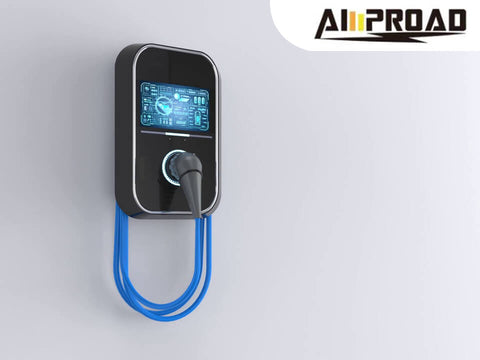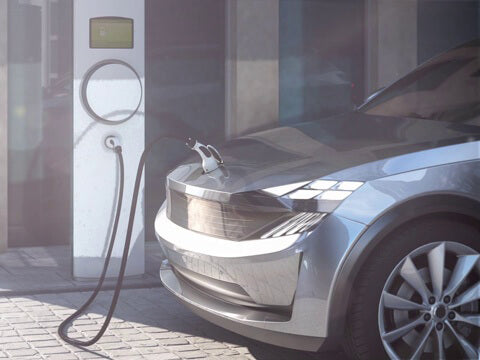
Ever hit the road in your electric car and worry about running out of juice? Imagine being miles from a charging station with a dwindling battery. Portable EV chargers have emerged as a potential solution, offering on-the-go charging for added peace of mind. But are they a necessity for every EV driver? This exploration dives into the world of portable chargers, exploring their pros and cons to help you decide if one is right for you. We'll weigh the benefits of flexibility and range extension against factors like charging speed and cost. We'll also explore alternative charging options like public stations and home charging to help you develop a comprehensive charging strategy for your electric adventures.
What are the Pros and Cons of Portable EV Chargers?
Electric vehicles (EVs) are becoming increasingly popular, but "range anxiety" – the fear of running out of battery power before reaching a charging station – remains a concern for some drivers. Portable EV chargers have emerged as a potential solution, offering on-the-go charging for added peace of mind. However, before investing in one, it's important to weigh the pros and cons to see if a portable charger aligns with your driving habits and needs.
Advantages of Portable Chargers:
- Emergency Buffer: Portable chargers can be a lifesaver in situations where you underestimate your range or encounter unexpected detours. By plugging into a standard household outlet (Level 1 charging), you can extend your driving range enough to reach a more powerful charging station.
- Enhanced Flexibility: Unlike public charging stations that are fixed locations, portable chargers offer unmatched flexibility. You can charge your car virtually anywhere with access to a standard outlet, be it at a friend's house, a campsite, or during errands. This eliminates dependence on public charging infrastructure such as Tesla destination charger, which can be sparse in some areas.
- Here are some additional factors to consider under the advantages category:
- Peace of Mind: For some drivers, the ability to extend their range in a pinch can significantly reduce range anxiety and make road trips less stressful.
Disadvantages of Portable Chargers:
- Slow Charging Speeds: Portable chargers typically offer Level 1 or Level 2 charging speeds, which are significantly slower than DC fast charging stations. A Level 1 charger might take several hours to add a meaningful amount of range, while a Level 2 portable charger can still take a significant amount of time for a full charge.
- Limited Range Extension: While portable chargers can provide a buffer in emergencies, they aren't designed to fully recharge your EV battery. Depending on the size of your battery and the charger's capacity, you might only gain a handful of miles from a few hours of charging.
- Here are some additional factors to consider under the disadvantages category:
- Bulk and Weight: Portable chargers, while designed for portability, can be bulky and heavy to carry around. This can be a drawback if you need to store them in your car frequently.
- Cost: Portable chargers can range in price depending on their power output. While they are generally less expensive than installing a home charging station, the cost should still be factored into your decision.
By carefully considering these pros and cons, you can determine if a portable charger is a necessary addition to your EV ownership experience. In the next section, we'll explore alternative charging options to help you develop a comprehensive charging strategy.
Alternatives to Portable Chargers
Availability and Accessibility of Public Charging Stations:
How widespread is the public charging network for EVs?
Public charging stations have seen significant growth in recent years, with many countries investing in expanding the infrastructure. The availability of public charging stations varies by region, with urban areas typically having denser networks compared to rural areas. While the coverage continues to improve, gaps in the network still exist in some areas.Level 2 EV chargers, commonly found at public charging stations, offer a reliable and efficient charging solution for EV owners. These chargers provide faster charging speeds than standard household outlets, making them a preferred choice for quick top-ups while out and about.
Is finding a public station always convenient, especially on long trips?
While the public charging network is expanding, finding a charging station, especially during long trips or in remote areas, can still be challenging. EV owners may encounter issues such as station availability, compatibility with their vehicle, or long wait times at busy stations. Planning routes in advance and utilizing mapping apps that show charging station locations can help mitigate these challenges.
Feasibility of Relying Solely on Home Charging:
Can everyone install a home charging station for their EV?
Home charging stations, also known as Level 2 EV chargers, offer the convenience of charging overnight while the vehicle is parked at home. However, not everyone has the ability to install a home charging station. Factors such as access to dedicated parking spaces, ownership or permission to modify property, and electrical infrastructure may limit the feasibility of home charging for some individuals.For those who can install a home charging station, it provides a cost-effective and convenient charging solution. Level 2 EV charger can replenish an EV's battery much faster than standard household outlets, significantly reducing charging times.
Is home charging always a viable option for everyday use?
Home charging is generally considered the most convenient and cost-effective option for everyday charging needs. With a Level 2 charger installed at home, EV owners can start each day with a full or nearly full battery, eliminating the need for frequent trips to public charging stations. Additionally, home charging allows for more flexibility in charging schedules, as EVs can be charged overnight during off-peak electricity hours.However, for EV owners without access to home charging, alternative solutions such as public charging stations or workplace charging may be necessary to meet their charging needs.
Ideal Use Cases for Portable EV Chargers
As electric vehicles (EVs) become increasingly popular, the demand for convenient and reliable charging solutions continues to grow. While public charging infrastructure is expanding, there are still scenarios where EV owners may find themselves facing challenges in accessing charging stations. In such situations, portable EV chargers emerge as indispensable tools, offering flexibility and peace of mind to drivers on the go. Let's explore two key scenarios where portable chargers prove their worth:
Do portable chargers offer a safety net for range anxiety on road trips?
Portable EV chargers serve as a valuable safety net for addressing range anxiety during road trips. While public charging stations are becoming more widespread, there may still be stretches of road without convenient access to charging infrastructure. In such situations, portable chargers provide reassurance to EV owners by offering the flexibility to charge wherever there's access to a power outlet. They can be a lifesaver when unexpected detours or delays occur, ensuring that drivers can top up their battery and continue their journey with confidence.
Are they suitable for topping off the battery at destinations without readily available charging stations?
Portable EV chargers are ideal for topping off the battery at destinations where readily available charging stations are scarce or non-existent. Whether it's a remote vacation cabin, a camping site, or a rural area with limited infrastructure, portable chargers enable EV owners to maintain their vehicle's charge without relying solely on public charging networks. This capability enhances the convenience and versatility of electric vehicles, allowing drivers to explore more destinations without worrying about running out of battery power. Additionally, topping off the battery with a portable EV charger can help extend the driving range for the return journey, providing peace of mind for EV owners venturing into areas with limited charging options.
How does the cost of a portable charger compare to the potential benefits it offers?
When evaluating the cost of a portable EV charger, it's essential to consider both the upfront purchase price and the long-term benefits it provides. Portable chargers, such as the AMPROAD portable Level 1 and Level 2 EV chargers, come with varying price tags depending on factors such as charging speed, features, and brand reputation.
For example, the AMPROAD portable Level 1 charger offers a cost-effective solution for EV owners who require basic charging capabilities at home or on the go. With its ability to plug into standard household outlets, it provides convenience and flexibility at an affordable price point.
On the other hand, the AMPROAD portable Level 2 charger offers faster charging speeds and additional features, such as adjustable amperage settings and built-in safety features. While it may come with a higher upfront cost compared to Level 1 chargers, the increased charging efficiency and versatility can outweigh the initial investment for frequent travelers or EV owners with specific charging needs.
In terms of benefits, portable chargers offer unparalleled convenience and peace of mind to EV owners, allowing them to charge their vehicles wherever there's access to a power outlet. Whether it's extending driving range during road trips, topping off the battery at remote destinations, or serving as a backup charging option in emergencies, the versatility of portable chargers adds significant value to the overall ownership experience.
Are there other factors to consider besides the initial purchase price?
Beyond the upfront cost, several other factors should be taken into account when evaluating the value proposition of a portable EV charger. These include:
- Charging Speed: Faster charging speeds may justify a higher initial investment, especially for users who prioritize efficiency and convenience.
- Build Quality and Durability: Investing in a reliable and durable charger can minimize the risk of malfunctions or breakdowns, ensuring long-term usability.
- Warranty and Customer Support: Manufacturers that offer comprehensive warranties and responsive customer support can provide added peace of mind and support in case of issues.
- Compatibility and Versatility: Ensuring compatibility with a wide range of EV models and charging scenarios can enhance the charger's usefulness and longevity.
Considering these factors alongside the initial purchase price can help EV owners make informed decisions and maximize the value of their investment in a portable charger.
FAQs / People Also Ask
Q: What is a portable EV charger?
A: A portable EV charger is a device that allows electric vehicle (EV) owners to charge their vehicles using a standard power outlet. These chargers are compact, lightweight, and designed for easy transport, providing flexibility and convenience for charging on the go.
Q: How does a portable EV charger work?
A: Portable EV chargers typically plug into standard household outlets, utilizing the existing electrical infrastructure to supply power to the vehicle's onboard charging system. They come with various connector types to match the charging port of different EV models and can deliver a certain level of power (measured in kilowatts) to charge the vehicle's battery.
Q: What is the difference between Level 1 and Level 2 portable EV chargers?
A: Level 1 portable EV chargers are designed to plug into standard 120-volt household outlets and offer relatively slower charging speeds compared to Level 2 chargers. Level 2 portable EV chargers require a 240-volt outlet and provide faster charging rates, making them more suitable for quick top-ups and longer journeys.
Q: Are portable EV chargers compatible with all electric vehicles?
A: Portable EV chargers come with different connector types, such as J1772 or Type 2, to match the charging ports of various EV models. It's essential to ensure compatibility between the charger and the vehicle before making a purchase. Additionally, some portable chargers may require adapters for certain EV models.
Q: Can portable EV chargers be used in emergencies?
A: Yes, portable EV chargers serve as a valuable backup charging option in emergencies or situations where access to traditional charging stations is limited. They provide EV owners with the flexibility to charge their vehicles wherever there's access to a power outlet, offering peace of mind and ensuring continued mobility.
Q: How long does it take to charge an electric vehicle with a portable charger?
A: The charging time with a portable EV charger depends on factors such as the charger's power output, the vehicle's battery capacity, and the available electrical supply. Level 1 chargers typically offer slower charging speeds, while Level 2 chargers can replenish the battery more quickly. As a general guideline, it may take several hours to fully charge an EV using a portable charger.





